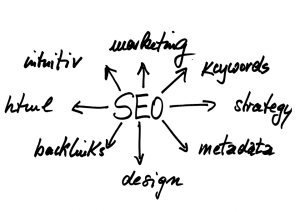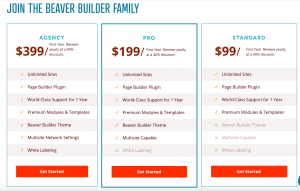— August 23, 2018
geralt / Pixabay
To many people, applicant tracking systems (ATS) may seem out-of-date, but the reality is they’re a piece of technology that has open opportunities for improvement and innovation. Like a computer with multiple USB plug-in spots, applicant tracking systems are designed to work with current advances in technology to create a faster, better, stronger recruiting machine. With that in mind, here are our predictions for the future of the ATS:
Strengthening the Talent Pipeline
Developing, managing and nurturing candidate relationships is becoming a vital partner for the of the future of ATS, and talent acquisition. Nearly four out of five candidates say the overall candidate experience they receive is an indicator of how a company values its people, and 58% of candidates with a prior negative impression of the hiring organization said they would not apply again in the future. In order to acquire top talent (and keep them in your teams), building candidate relationships must be a top priority.
How does this fit in with an ATS? Candidate Relationship Management (CRM) software helps to automate each step in your recruitment marketing process to help you nurture the right relationships and strengthen your talent pipeline. It integrates with an ATS and is able to promote the job description while nurturing candidates with unique communication and a tailored, relevant experience.
One specific CRM feature that will help to further talent pipeline nurturing is SMS capabilities. 73% of job seekers prefer to receive targeted job opportunities via text so integrating a CRM with your applicant tracking system that does having texting capabilities makes attracting and engaging the best and brightest easier than ever before.
Maximizing Efficiency with Algorithms
Simply predicting if someone will be a good fit is not enough anymore. For example, just because you have a candidate with an impressive set of diplomas doesn’t necessarily mean they will be a rockstar employee. Some educated candidates may be naturally good at taking tests and passing classes, but traits like work ethic, goal-driven passion and determination can’t be gleaned from an academic test.
Enter Intelligent Automation and, more importantly, Intelligent Selection. Recruiters need to know who is most likely to accept an offer and stay with the team long enough to make a real impact. Intelligent selection has the ability to measure skills, cultural fit, offer acceptance probability and probable retention. Using intelligent automation to power your ATS enables employers to automate interview scheduling for the most qualified candidates, reshape the talent acquisition process and allow you to bring in the best, most diverse talent out there. Intelligent selection improves the overall quality of hire by using prescriptive analytics rather than just predictive to give recruiters a recommendation based on overall job fit, acceptance probability, retention and more. It’s the partner ATS needs in order to grow a company-wide culture of upward talent mobility.
Promoting Your Internal Talent Faster
The future of the ATS is no longer talent-driven, it’s team-driven. Talented employees are combining into groups of highly-skilled, dynamic and diverse talent — AKA, a talent workforce. The more talent a firm has the stronger it’s talent workforce, but the strongest talent usually comes from within. After all, internal hiring is 6x more effective than all other sources of hiring.
But how does this fit in with an ATS? Career opportunity software provides the means to nurture internal talent for growth. Why? Because no one wants a dead-end job. Your employees want opportunities for growth and setting them up on a path to success is faster and more cost-effective than recruiting new talent from outside the firm. Plus, it keeps your best talent in your firm longer. Using an internal career opportunity platform gives the talent acquisition team the ability to customize application forms that leverage existing employee data and gather information unique to internal employees. Essentially, internal talent can be fast-tracked to best-fit opportunities because their information is already being tracked by the system. This will give recruiters a better idea of how an individual may fit on a team and perform in particular situations. This information helps recruiters better form teams of talent based on existing employee pools of candidates.
The future of the ATS is continuously growing, but it’s a technology that isn’t black or white. Applicant tracking systems have the ability to grow with the industry and add new advances and innovation to its roster of functions. Put our vision to the test!
Originally published here.
Business & Finance Articles on Business 2 Community
(100)







